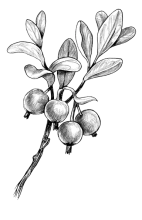Spontaneous fermentation is a winemaking process in which the yeast that ferments the grape juice is naturally occurring, rather than being added by the winemaker. In spontaneous fermentation, the grapes are crushed, and the juice is placed in containers, where naturally occurring yeast and bacteria on the grapes and in the air start the fermentation process. The outcome of spontaneous fermentation can be unpredictable, as it depends on the specific yeast and bacteria present in the environment, as well as the temperature, sugar levels, and other factors. This can result in unique and complex flavors and aromas in the wine. Spontaneous fermentation is often used in natural and biodynamic winemaking, and is favored by winemakers who seek to produce wines with a strong sense of place and that express the unique qualities of the grapes and terroir. However, it can also be more challenging to control and can lead to spoilage or off flavors if not managed carefully.
